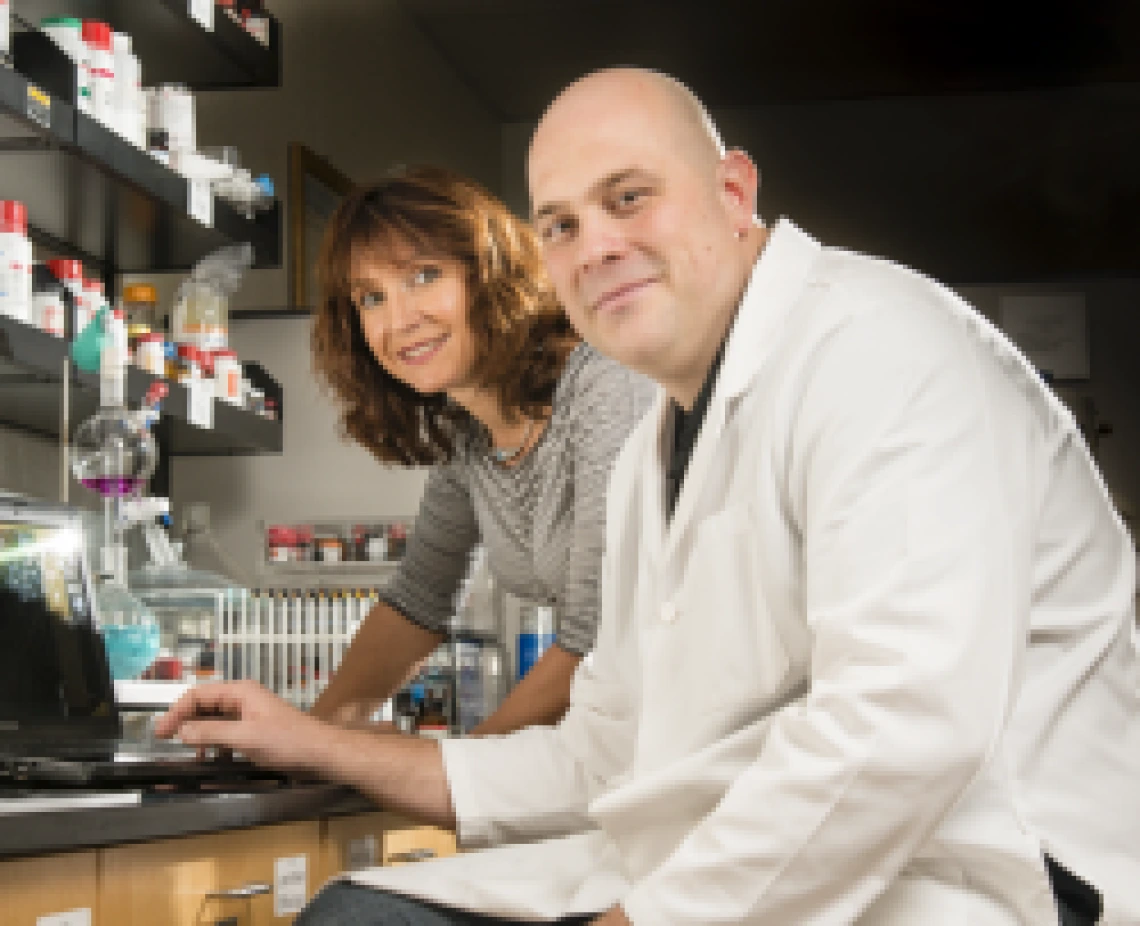UACC researchers developing novel pancreatic cancer treatment

A new drug that is being researched at the University of Arizona Cancer Center aimed at pancreatic tumors may be delivered more effectively by being encapsulated by nanoparticles.
The drug – PHT-427 – was developed at the UACC by Emmanuelle J. Meuillet, PhD, in a long-standing collaborative effort with former Center member Garth Powis, DPhil, (now Director of the Sanford-Burnham Medical Research Institute in San Diego) together with other investigators at MD Anderson Cancer Center in Houston. Drs. Powis and Meuillet are further developing the compound in their start-up company, PHusis Therapeutics, Inc., founded in 2009.
Because the pancreas is a thick, sinewy organ, it tends to form a mesh-like network of cells between its blood vessels and the tumor, effectively blocking delivery of cancer cell-killing drugs.
“The pancreas tries to protect the body from the tumor, but in effect it’s protecting the tumor from the drug,” Dr. Meuillet says.
Dr. Meuillet is working with Joseph Kobes, a Biomedical Engineering graduate student in the laboratory of Mark “Marty” Pagel, PhD, to make a nanoparticle formulation that will effectively carry the drug to the tumor site. The team is using FDA-approved nanoparticles for the testing.
In the laboratory, Dr. Meuillet says biochemically, it is possible to see that the tumor is attacked by the drug delivered by the nanoparticles. She is not sure why that is occurring.
“What is also very exciting is that the metastases from the pancreatic tumor are reduced,” meaning increased patient survival, says Dr. Meuillet, who is looking in depth at understanding these observations.
Results of this UACC collaborative drug development and delivery research will soon be published in the top journal of nanomedicine, Nanomedicine: Nanotechnology, Biology and Medicine.
Once the drug is effectively delivered to the tumor, oncologists can use magnetic resonance imaging (MRI) to determine if the cancer cells are dying within one day after starting the drug treatment, by measuring how water diffuses through the dying tumor, said Dr. Pagel, a member of the Cancer Imaging Program.
Previous research conducted by Dr. Pagel and others at UACC demonstrated that the behavior of water in tissue can provide important information about tumor development and that behavior can be evaluated by MRI.
Dr. Pagel said this collaborative effort to find an effective drug delivery method encompasses experts from a variety of academic disciplines at the University of Arizona: Chemistry, Materials Science and Engineering, Pharmacology, Nutritional Sciences, Cancer Biology, Biomedical Engineering and Medical Imaging. The Cancer Center’s Experimental Mouse and Tissue Acquisition and Cellular/Molecular Analysis shared resources also were instrumental in this research.
“Collaboration is our strength at the University of Arizona Cancer Center,” he says.
-Dec. 9, 2013



